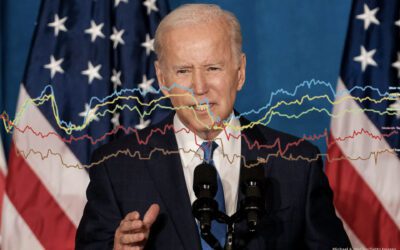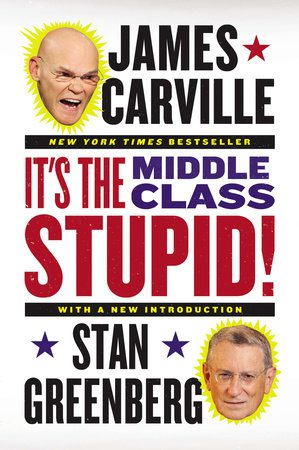The latest national survey by Greenberg Quinlan Rosner for Democracy Corps reveals an intensely anti-establishment, anti-Washington, anti-Wall Street moment. Three quarters of all voters say the country is on the wrong track; just 15 percent believe we are heading in the right direction – the lowest optimism since the crash and down 13 points since June. Negative ratings of the economy are up 5 points since last month and now equal what they were during the height of the economic crisis.
It is angry and ugly out there, reflected in dramatic pull-back from the political and economic establishment: Washington, Wall Street, and politicians of both parties receive negative ratings across the board, hitting bottom with the Republican Congress. Nearly 60 percent of voters give Wall Street a negative rating. The President’s approval rating has dropped to 40 percent–”the lowest in our tracking. But voters have pulled back more sharply from the Republicans; two-thirds now disapprove of the Republican Congress, almost half (48 percent) disapprove strongly.
Key Findings
– Voters are intensely frustrated with an intractably stagnant economy. The state of the economy rates coolest of all, with nearly 80 percent of all voters giving the economy a cool rating.
– Voters are frustrated with the economy but unreservedly angry with the political and economic establishment that cannot fix it. On our thermometer scale, voters have pulled back sharply from the president and both parties in Congress. They reserve much anger for Republicans in Congress but save the bulk of their anger for Wall Street and its banks and financial institutions. Fewer than 20 percent of voters give them a positive rating and almost 60 percent give them a negative rating.
– The presidential ballot is even. While Obama has improved his standing among independent voters, the biggest pull-back from Barack Obama has come from his base–”mostly young people and minorities. – Republicans in Congress are being held accountable for the mess in Washington. Less than a year after they made big election gains, voters have pulled back sharply.
It’s Cold Out there.
On our thermometer scale, voters give chilly ratings all around. Everyone has dropped substantially, but support for the Republican Congress has completely disintegrated. More than half of all voters give these Republicans a negative rating, with a mean rating under 40 degrees. With House Republicans getting a remarkable 65 percent disapproval, the race for Congress is now dead even, after Republicans won by 8 points in 2010. To be sure, Democrats do not fare much better”mean thermometer ratings for both Democrats in Congress and the Democratic Party have dropped 2 points since August. But perhaps it is a luxury to be party out of power. Across the board, Republicans are taking a much bigger hit from voters–”with the both the Republican Party and its major figures rating lower than the Democratic Party and its leaders. Importantly, voters in Democratic districts do not find their incumbents as culpable for the mess as voters in Republican-held districts. As a result, the mean thermometer rating for Democratic incumbents has increased slightly, while Republican incumbents have dropped an average of 5 points.
Economy in the driver’s seat
In regression analysis modeling, which party is better able to handle the economy and which party has the right approach to jobs were strong predictors of the congressional vote. Republicans hold an advantage on the former; the parties are essentially even on the latter. With judgments about the Republican Congress in sharp decline, the economy is clearly holding back Democrats from moving into the lead. The biggest shift against the Republicans has come from independents, who are increasingly turned off by what they see and hear out of Washington. According to exit polls, Republicans won independents last November by a 19-point margin. Their advantage had narrowed to 17 points in August. Strikingly, Republicans are now winning independents by just 7 points. Seniors have also pulled back from these Republicans in big numbers. In last November’s exit polls, Republicans won seniors by a 21-point margin. This advantage has completely disappeared, with the vote among seniors now basically even (45-46.)
President Obama losing ground in his broad base
Even as the Republican Congress has taken the biggest hit, the President is not immune from voters’ anger. Voters have registered their anger with Obama as economic conditions and outlook have declined, and as he is seen as increasingly unable to affect positive change. His approval is down 5 points since August, and now stands at 40 percent (with 53 percent saying they disapprove of the way he is handling his job as president.) The biggest drop-off has come among his broad base–”79 percent of Democrats now say they approve of the President’s job performance, the lowest in our tracking. The biggest decline has come from young people and minorities.
Among minority voters, 63 percent now say they approve of the president’s job performance, the lowest in our tracking. More significant is the drop-off among young people, who voted for the president by huge margins in 2008. Less than 40 percent of young people (under age 30) now say they approve of the President’s performance, 54 percent disapprove. This is a significant drop since August when a majority of young voters (52 percent) approved of the way the president was handling his job, 42 percent disapproved. That is a net 26-point decline in two months. The President is in a competitive race because Mitt Romney remains an unattractive alternative for many voters.
Romney is stuck at 45 percent on the vote -virtually unchanged all year. He is not popular, and his personal ratings are not improving. His mean thermometer rating is at just 43.1 degrees, the lowest since we began tracking. As the only Republican who seems to have any staying power, for now, voters are left with this choice. As a result, more people are volunteering they will vote for a third party candidate for President. Seniors, who gave Romney an advantage in August, have begun to desert the Republican front-runner, who is now losing these voters by a 3-point margin. More dramatically, Romney was winning 52 percent of independent voters in August; he is now at 45 percent with this key bloc.
His biggest drop has come among independent women–“who swung for Romney by a 22-point margin in August. Obama is now winning independent women by 2 points. But Obama is also at 45 percent–”winning only 85 percent of those who voted for him in 2008. More significant is the bloc of voters who now withhold support from both candidates. Since August, the number of voters volunteering that they will vote for neither Obama nor Romney has doubled. This is clearly an anti-Washington, anti-Wall Street moment, highlighted by the recent Occupy Wall Street/Occupy Washington protests. Voters are rapidly losing their faith in both to turn things around. And recent news out of Washington does not bode well for anyone in the establishment.
[1] This memo is based on a national survey of 1000 likely 2012 voters (1000 weighted) from October 15-18, 2011 conducted by Greenberg Quinlan Rosner Research for Democracy Corps. Unless otherwise noted, margin of error= +/- 3.1 percentage points at 95% confidence.




